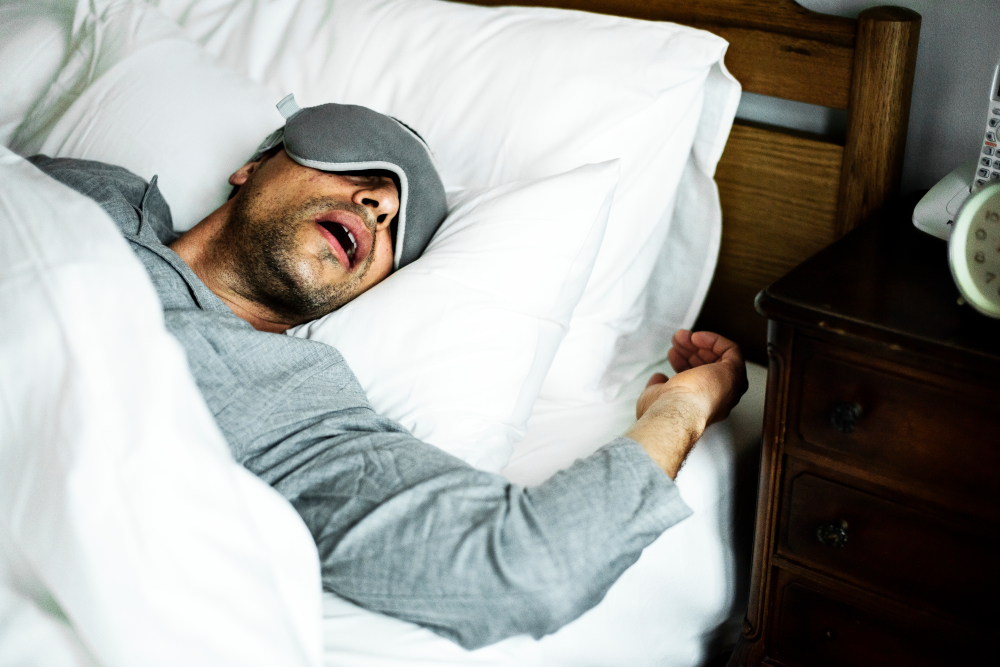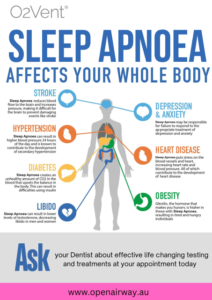Sleep Apnoea: A Silent Threat to Your Whole Body

Sleep apnoea is more than just a nightly disturbance; it is a condition that can have far-reaching impacts on your overall health. This common yet serious disorder is characterised by repeated interruptions in breathing during sleep, leading to reduced oxygen levels in the body. Understanding how sleep apnoea affects various aspects of your health can be crucial for early diagnosis and effective treatment.

The Whole-Body Impact of Sleep Apnoea
- Stroke
Sleep apnoea reduces blood flow to the brain and increases pressure, making it difficult for the brain to prevent damaging events like strokes. This elevated risk is due to the constant strain on the cardiovascular system caused by interrupted breathing patterns.
- Hypertension
Sleep apnoea can result in higher blood pressure 24 hours a day and is a known contributor to the development of secondary hypertension. The repeated drops in oxygen levels during apnoeic events increase blood pressure and strain the cardiovascular system.
- Diabetes
Sleep apnoea creates an unhealthy amount of CO2 in the blood that upsets the balance in the body. This imbalance can result in difficulties using insulin, thereby increasing the risk of developing type 2 diabetes.
- Libido
Sleep apnoea can result in lower levels of testosterone, decreasing libido in both men and women. The disrupted sleep and reduced oxygen levels negatively impact hormone production, which is essential for maintaining a healthy sex drive.
- Depression and Anxiety
Sleep apnoea may be responsible for the failure to respond to the appropriate treatment of depression and anxiety. The chronic fatigue and poor sleep quality associated with sleep apnoea exacerbate mental health issues, making them more difficult to manage.
- Heart Disease
Sleep apnoea puts stress on the blood vessels and heart, increasing heart rate and blood pressure. This stress contributes significantly to the development of heart disease, as the cardiovascular system struggles to cope with the intermittent oxygen deprivation.
- Obesity
Ghrelin, the hormone that makes you hungry, is higher in those with sleep apnoea, resulting in tired and hungry individuals. This hormonal imbalance can lead to weight gain, creating a vicious cycle where obesity further exacerbates sleep apnoea symptoms.
Ask Your Dentist About Effective Testing and Treatments
Recognising the extensive impact of sleep apnoea on your health is the first step towards effective management and treatment. At Future Dental, we offer comprehensive testing and treatment options designed to improve your sleep quality and overall health.
Don’t wait – ask your dentist about effective, life-changing testing and treatments at your appointment today. By addressing sleep apnoea, you can significantly reduce the risk of associated health conditions and enhance your quality of life.
For more information, visit www.openairway.au and take the first step towards better health.



